- Home
- Jane Arbor
Jasmine Harvest Page 8
Jasmine Harvest Read online
Page 8
In fact, Caroline realized, Ursule had taken warmly to her from the outset. She showed the same curiosity as Berthin had about her circumstances and within an hour of their second meeting had been ready with the kind of confidences which Caroline couldn’t herself have offered a comparative stranger, however sympathetic her ear.
When she was not plying Caroline with personal questions: How much older was she than Betsy? So little? And yet so sage by contrast! Was she engaged to be married—no? Nor seriously courting? But with her undoubted flair for the role, always keeping the idea of marriage in view surely?—Ursule’s recurring theme was Berthin ... always Berthin; his goodness, his brilliance, his zeal for work and his deplorable lack of self-seeking.
“He seems quite blind to all proper ambition, that one. Yet look, will you,” she demanded of Caroline, “at the possibilities open to him here at Prairies Pascal! I ask him often, ‘Aren’t you Director? Can’t you then order this and change that by a mere stroke of the pen?’ But all he says is—what do you think?—that, Director though he may be in name, he has never regarded himself as other than in stewardship for Paul! For Paul! For that lightweight, that playboy, that unprincipled gamin of whom his own father took pretty good measure when he—! But I expect you’ll have heard about how and why Berthin was made Director here under Gabriel Pascal’s will, won’t you?”
Caroline, more than a little embarrassed, said rather shortly that she had. Ursule, however, avid to relate the details, only folded her hands and continued with relish,
“For the way of his will people have called Gabriel eccentric, unjust and worse. But when a man finds himself with an incompetent libertine, of a son whom, under our sentimental laws, he may not disinherit entirely, how is he to protect his inheritance except by some such prudence as Gabriel showed by the provision which barred Paul from a control he wasn’t fit to have? No indeed! If you ask me, Gabriel erred well on the side of charity when he assumed there was a faint chance that marriage might reform either his son’s morals or his handling of the estate. For that’s how one must read the terms of the will, though as well expect a leopard to change his spots when he takes a wife, I say! What’s more, even Gabriel may have known he’d rest better in his grave if Berthin did marry first and so remained in control. For you understand it was not only the scandalous business of that girl, Fanchon Raguse, which destroyed his father’s faith in Paul, but our fine monsieur’s failure to know his job too?”
But at that waspishness Caroline was moved to protest. “Please—!” she began, reflecting that if she weren’t sick-visiting to Ursule, she would have been more emphatic. “I’ve heard the gossip, of course. But I don’t know the rights or wrongs of it, and though Paul is nothing to me—just our landlord at the villa—I happen to like the little I’ve seen of him. And as Betsy and I can’t avoid meeting him fairly often while we’re his tenants, when we do, I’d rather not remember I’d been discussing his private affairs, if you don’t mind?”
For a moment Ursule appeared daunted. Then she said tartly, “That’s all very well—if he had ever troubled himself to keep them decently private! Why, before Gabriel died, it was public property in the region that they were at loggerheads over the estate. And those barefaced admissions of Paul’s at that wretched girl’s inquest! But naturally you wouldn’t know about them. You weren’t there.”
“Were you?” Caroline posed.
“I?” Ursule bridled. “Indeed no. At the time Berthin and I were still living in Grasse. We only came here when he took over Pascal and, I’m thankful to say, appreciated that I couldn’t bring myself to live under the same roof as his cousin. But what do you suppose? That, just through being a handful of kilometres away, we could escape the scandal? Or that every busybody acquaintance we had wasn’t ready to see we heard Paul’s shameless evidence, word for word as he uttered it? So—
“Yes, he had told the court, he knew Fanchon well. Earlier she had been a maid of his mother’s. And yes, on the night in question he had been alone at Mimosa, his villa, and admittedly the girl had been to see him there.
“For what purpose? they asked him. Ah, that was her affair, and the court would understand that he did not care to betray the confidence of une pauvre who was dead?
“And the money found on her after her fatal accident? Yes, he had given it to her. Why? Because she needed just that sum. For the record and for a similar reason, he had lent her his raincoat to protect her on what threatened to be a wet journey for her, back to Villon on her moped.
“No, he had enjoyed no guilty liaison with la Raguse. She wasn’t—if the court would forgive the phrase—his type. Nor was she distressed when she left him; quite the reverse, in fact ... And since the accident was due to a failure of her machine and had had witnesses to it, he understood he was under no suspicion of complicity in her death—?
“And so on. You see? Every answer pat, prepared, designed by their very effrontery to twist the court round his little finger, even if they couldn’t deceive Gabriel who knew him only too well!”
“Knew what of him?” Though Caroline despised the question, she heard herself putting it.
Ursule shrugged. “In this case, what else than that the girl had almost certainly been his petite amie and, tiring of her, he had simply paid her off to her satisfaction?”
“But you say he denied it to the court?”
“Not on oath. He was only asked to “help the inquiry’ into her admittedly accidental death. And if it wasn’t that, it was probably something worse—”
Caroline moistened her lips. “Worse?”
“Yes. Blackmail. That, as the phrase goes, she ‘had something on him’; the money was the price she asked but, knowing it wouldn’t be the last she would want, he wasn’t ill pleased by the news of the disaster, though naturally cursing the impulse which had loaned her his raincoat ... But no!”—Ursule checked as Caroline jerked her head aside in rejection and distaste—“This you don’t want to believe of him and nor do I, until it is proved to be true. So let’s change to a pleasanter subject, shall we? For instance, Berthin tells me you have promised to allow him to show you over the estate tomorrow. I's that so?”
“Yes.” Caroline spoke absently, her thoughts elsewhere; in imagination seeing the coroner’s courtroom in Villon’s tiny Hotel de Ville where Paul Pascal, not on trial for Fanchon Raguse’s death, had nevertheless been judged by his peers...
“And he’ll be taking you to Grasse later, to see the processing of a crop in the perfumeries?”
“Yes, but that is to wait until he can spare the time.”
Ursule nodded complacently. “Somehow I don’t think he will be long in finding the time. Already he seems too fond of your company to care to miss any chances of it. And you? You like him too? You find him congenial?”
“Very,” said Caroline, meaning it. “He’s such an easy person to talk to; so even-tempered and tolerant and—well, altogether nice.”
“Which is much what he thinks about you! He frequently says so, as well as praising your looks. And that’s rare in Berthin—finding himself so attracted that he wants my sympathy for what he feels. We are very close in most things, of course, but this kind of confidence he has given me only once before, when he was much younger and hoped to marry a pretty little colleague of his named Sophie Marat. But Sophie died of polio during their engagement, and as far as he has allowed me to guess, he has never given second thoughts to marriage since. That is, unless he is considering it again now, which would delight me” Pausing there as if to give Caroline time to absorb the loaded hint of that, Ursule added on her next breath, “For you do know, don’t you, Caroline, if it isn’t too early to hope it or that you might respond, that I, for one, would welcome the idea with all my heart?”
Never before at the receiving end of blatant matchmaking like this, and torn between ridicule of the absurd notion and reluctance to hurt Ursule, Caroline hesitated before temporizing with.
“If you mean you wonder wheth
er Berthin is thinking of asking me to marry him, it’s a lot too early, I’d say. Why, we met only just over a week ago, which would make it a bit—whirlwind on his part, wouldn’t it?”
“All the same, it does happen, as one knows. But even if, so far, it’s only so much wishful thinking on my part, now I’ve put it to you, you’ll be looking at him and thinking of him differently, perhaps?”
Caroline said gravely, “I’m afraid I may, and I don’t want to.”
“I suppose, because you think you will feel embarrassed with him? But surely you don’t imagine I’ve let him guess what I’m able to read into his interest in you, or that I should sound you about it? My dear, you should give me credit for having learnt to manage him better than that! If I haven’t, then I’ve wasted my time, all these years we’ve made our home together. But that’s something else I ought to mention—I mean, you shouldn’t think that I’d expect to keep my present place in Berthin’s household when he marries. For I hope I know how to efface myself when necessary, and you wouldn’t find me coming between you or trying to hold on to reins which ought to pass to you.”
Doubting that, feeling more than a little trapped, but touched at the sight of Ursule’s fingertips going to hide the quivering of her lips as she made her renunciation, Caroline said vigorously,
“If I should happen to be around when Berthin does marry, I should think a lot less of him if he did allow you to be completely ‘effaced’ as you call it! But please don’t let’s assume he is thinking of me in that way already. Because though I do like him, I want to keep him as a friend, and you too, and you do see that might be difficult if I’ve got to watch my step with him all the time?”
“You would only need to do that if you were convinced you must refuse him,” Ursule pointed out.
“But I think I am convinced,” Caroline said, knowing she was and, if she were honest, why.
“All the same,” Ursule, her control regained, lit another cigarette from her last, “you shouldn’t discount Berthin as an eligible parti, you know. Oh, yes—” at Caroline’s quick frown—“one realizes you English pride yourselves on putting love first and a man’s means second. But Frenchwomen are realists; they don’t blind themselves to the truth that marriage, like everything else, runs better on well oiled wheels. And if Berthin does secure his control of Pascal as I’ve no doubt Gabriel intended he should, he’ll then be in a position to take whatever he considers is his full share out of the estate—Oh, dear, you’re going already? Betsy is picking you up and taking you down to Cannes? Yes, of course, so you said. But I shall see you again tomorrow after your expedition with Berthin? Good ... Run along then now. A la bonne heure!”
It was not, however, Betsy’s car which awaited Caroline on the road below. It was Paul’s.
Opening its door for her, he explained, “I looked in at the villa, to find young Betsy fuming to be off for some date down below. So I offered to collect you on my own way down, d’you mind?”
Did she mind! But he couldn’t know that, as always now at sight of him, something within her had alerted to a danger which made nonsense of the casual question, but which her will didn’t want to escape.
As she took her seat beside him, “Are you swimming from Bar Soleil too?” she asked.
“No. I’m lunching Ariane at the Yacht Club this morning. But there’s always tomorrow, if you’d care to name the hour?”
“Tomorrow? No, I’m sorry. I’m not free.”
His glance slanted momentarily from its watch on the road ahead. “Prior engagement? Or brush-off.”
“Previous engagement, of course. Berthin is going to drive me round the estate.”
Paul murmured. “How did one guess it would be some tie-up with either Berthin buddy or Ursule buddy? According to Betsy, you’ve spent most of your time up at the cottage ever since you arrived, so why suppose it could be allowed to draw blank tomorrow—or ever?”
“Well, it certainly can’t tomorrow. It’s very good of Berthin to spare the time, and I’ve no intention of crying off something I’ve been looking forward to a lot. Besides, if I hadn’t gone over, Ursule would have had no help at all while she was out of action.”
“And whose fault was that? Simone knows an order when she hears one, and if Ursule had been willing to play along, Simone would have lined up all the help she wanted.”
Unable to refute that, Caroline shifted ground. “Anyway,” she said, “you shouldn’t think I’m making a virtue of visiting the cottage, because if there’s been any advantage, it’s mine. One of my main reasons for joining Betsy here was in order to practise my French, and with Berthin and Ursule I’m hearing it and talking in it all the time.”
“There now!” Paul’s tone affected deep concern. “Why didn’t you say you were on a lingual course, and instead of Hornblower I’d have laid on a complete Larousse and a set of phonetic records in your room! Meanwhile, I daresay it hasn’t escaped you that a few million French people, other than those two, are prattling the language all over the place? Or that even I, hybrid that I am, managed to falter a word or two here and there and contrive to make myself understood when I do?”
“But mostly you don’t use it with Betsy and me. Nor do the rest of her friends, not even the French ones,” Caroline objected.
“That’s in deference to Betsy, who considers she is doing both them and the language proud if she achieves the odd ‘Oui’ and ‘Non’ and ‘Merci bien’ now and then. But they would speak it to you if you wanted them to. And so would I—on occasion.”
“What occasion?”
“Well, for instance, I usually resort to French for my more romantic moments. Because I daresay you’ll agree that, given the right time and place and a receptive companion, little nonsenses like ‘Je t’aime’ or ‘Je t’adore’ or ‘Ma précieuse, tu me rends fou d’amour!’ murmured in French, do acquire that extra something of passion which English hasn’t got?”
Caroline laughed rather shakily. “I’m afraid I wouldn’t know, never having been privileged to hear a Frenchman telling me I’m driving him mad with love!”
“Stick around and you will! But Englishmen have said so—or words to that effect?”
A pause. Then, “I’ve been engaged, if that answers the question,” she said.
This time he turned to look at her. “So? But you aren’t any longer. Whose fault was it—yours or his?”
“Does it have to be anyone’s fault?” she countered.
“You know quite well I meant, did he fall out of love with you or you with him? Or wasn’t it like that at all? What was his name?”
She took the questions singly. “It was like that. And—he with me first. His name was Roy.”
“First? You’ve forgotten him since? You’ve got over it?”
“Quite, thank you. It was a long time ago.”
“How long?”
“All of two years, though, it took considerably less for me to thank my stars—and his—for our escape from a ghastly mistake.”
“And now? There’s someone else?”
She stared at the heat-shimmer which danced above the bonnet of the car. “No.”
“And when there is, how is he going to have to measure up in contrast to friend Roy?”
“Measure up?”
“Don’t be obtuse. I’m fishing to be told the type you think you may fall for now, having finally written off this Roy.”
“Does anyone look for a partner by type or by a kind of Identi-kit process—so much of this quality, so much of that?”
“I thought women were supposed to cherish an ideal in theory, even if they settle for something more mundane in practice?”
Caroline said crisply, “You’ve been misinformed. Most of us are down to earth enough to know there’s ‘no such animal’ as an ideal man. But we do learn from experience, and if you insist, I’d make a guess that sometime in the future I’m likely to marry a sensible, sober man I can trust, and be very happy doing it.”
“In other wo
rds, no addlepates, no idlers, no potential Don Juans need apply? But if you admit to looking for this sterling character, doesn’t that make him your ideal type and so prove my point?”
“I am not ‘looking for him’! I only said—”
“I heard—that you’ll probably take him and even want to quite badly, if and when he shows up, which you claim he hasn’t yet?”
“I’ve told you—no.”
“Not even an approximate sample you would be prepared to consider? No? Well, of course the Riviera isn’t one of the best places to look. It doesn’t exactly breed ’em staid—But there are notable exceptions, even so. What about—Berthin, for instance?”
“Berthin?”
Paul’s brows went up. “Why not? He seems to have taken first option on your company, and as a package-deal in—what was it?—wisdom, sobriety and trustworthiness—I’d call him good value for your speculation at least—”
But there he checked at Caroline’s convulsive movement. Her face scarlet, her tone as ironic as she could make it. “Would you indeed?” she inquired. “How perceptive of you! And how—if I may so—downright impudent as well!”
He laughed maddeningly. “Impudent? Nothing of the kind, in view of my allegedly special and peculiar interest in Cousin Berthin’s matrimonial plans!”
“Which I suppose allows you the right to presume to make them for him, not to mention mine for me?”

 High Master of Clere
High Master of Clere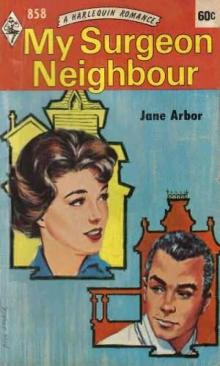 My Surgeon Neighbour
My Surgeon Neighbour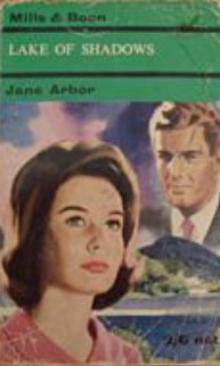 Lake of Shadows
Lake of Shadows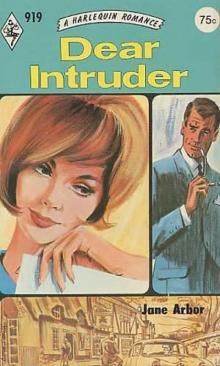 Dear Intruder
Dear Intruder Flash of Emerald
Flash of Emerald Return to Silbersee
Return to Silbersee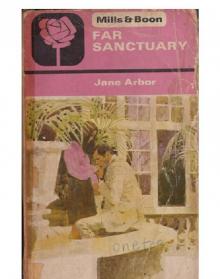 Far Sanctuary
Far Sanctuary Sandflower
Sandflower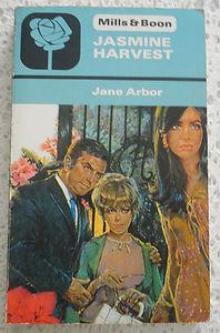 Jasmine Harvest
Jasmine Harvest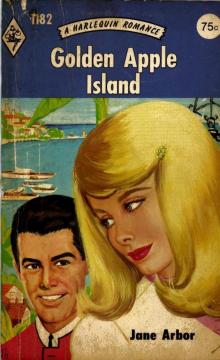 Golden Apple Island
Golden Apple Island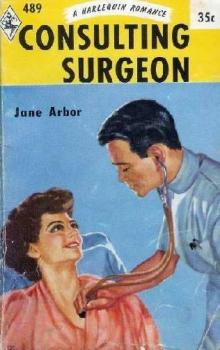 Consulting Surgeon
Consulting Surgeon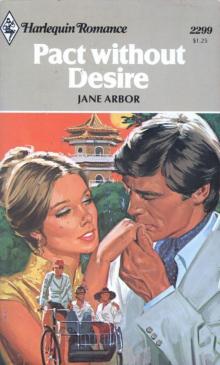 Pact without desire
Pact without desire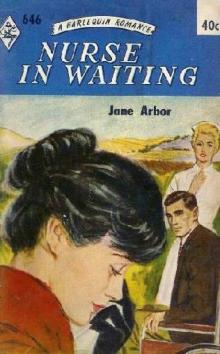 Nurse in Waiting
Nurse in Waiting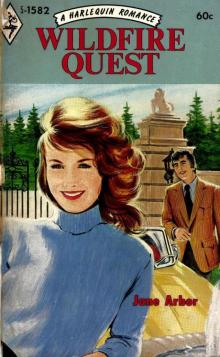 Wildfire Quest
Wildfire Quest Roman Summer
Roman Summer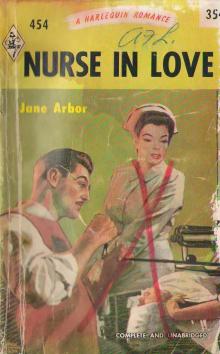 Nurse in Love
Nurse in Love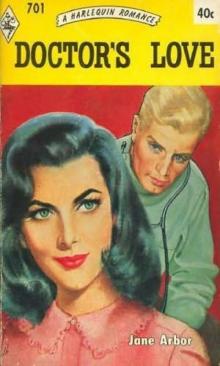 Doctor's Love
Doctor's Love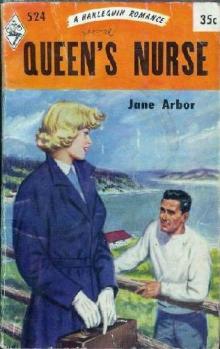 Queen's Nurse
Queen's Nurse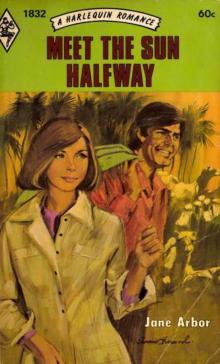 Meet the Sun Halfway
Meet the Sun Halfway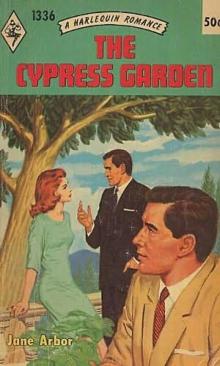 The Cypress Garden
The Cypress Garden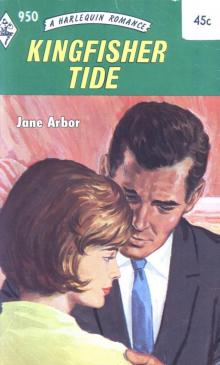 Kingfisher Tide
Kingfisher Tide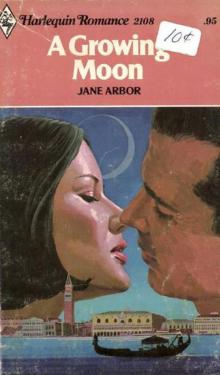 A Growing Moon
A Growing Moon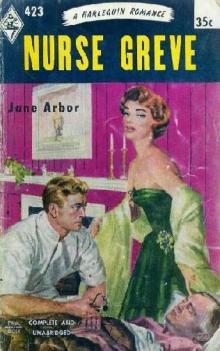 Nurse Greve
Nurse Greve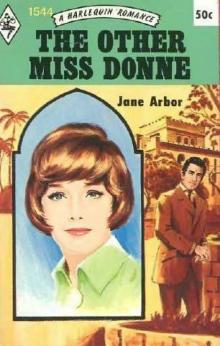 The Other Miss Donne
The Other Miss Donne